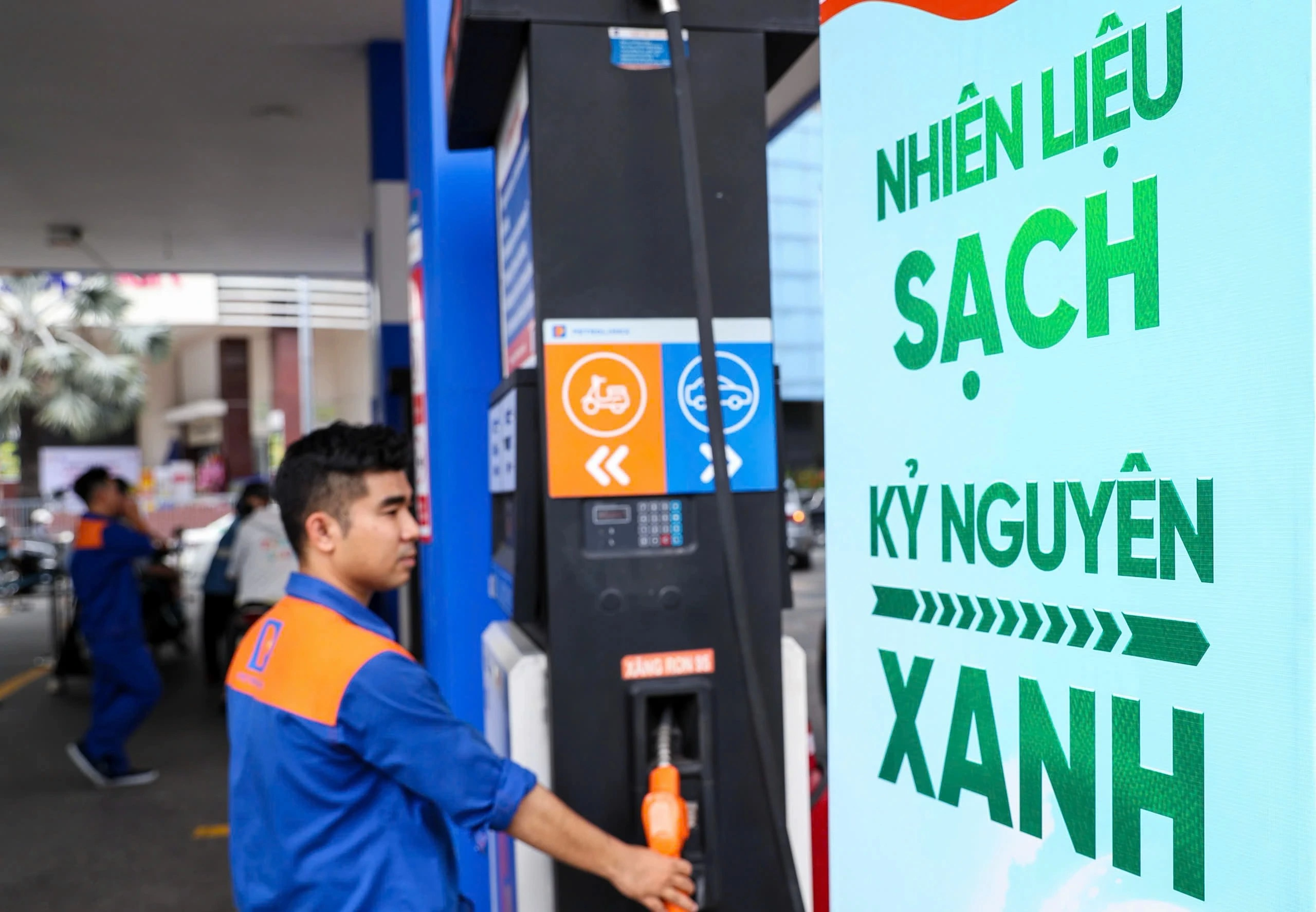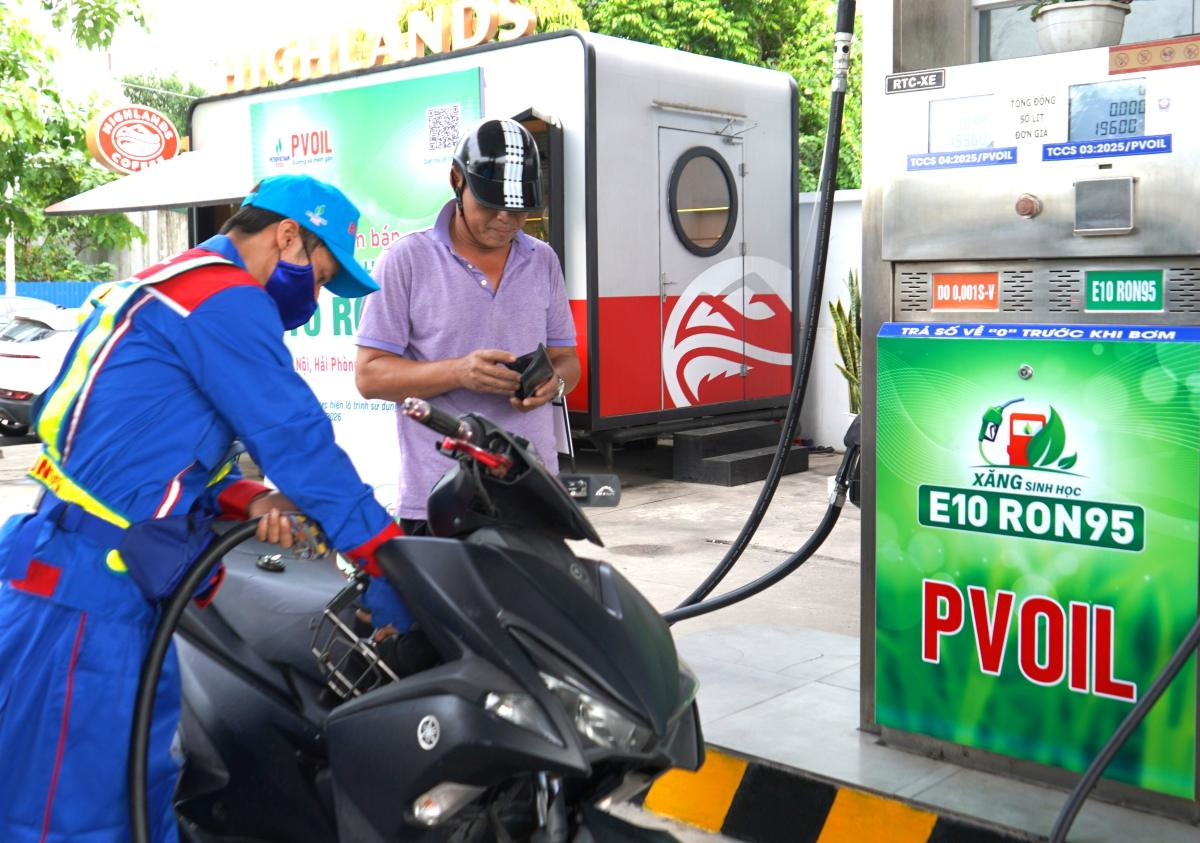What is E10 Gasoline? Which Vehicles Can Use E10 Gasoline in Vietnam?

E10 is a type of gasoline blended with 90% traditional gasoline and 10% ethanol, which helps save costs and protect the environment. This article will explain what E10 is, the benefits of using this fuel, and which types of vehicles can effectively use E10. Additionally, we will guide you on how to use E10 correctly to ensure your vehicle's performance and longevity.
What is E10 Gasoline?
E10 gasoline is a fuel blend consisting of 90% traditional gasoline and 10% ethanol, a renewable fuel derived from plants. This type of gasoline not only helps consumers save costs but also contributes to environmental protection by reducing CO2 emissions.
With the advantages of being more affordable and capable of cleaning the engine, E10 gasoline is becoming increasingly popular in Vietnam. However, a major question many people ask is, "Which vehicles can use E10 gasoline?"
Which Vehicles Can Use E10 Gasoline?
To safely and effectively use E10 gasoline, your vehicle must meet certain technical standards. Most modern vehicles, from cars to motorcycles, can use E10 gasoline. However, for older vehicles, the use of E10 gasoline needs to be carefully checked.
Cars Using E10 Gasoline: Modern car models can use E10 gasoline without encountering issues because they are designed with engines that can handle ethanol. However, you should refer to your vehicle's manual to confirm whether your car is compatible with E10 gasoline.
Motorcycles Using E10 Gasoline: Similarly, most modern motorcycles can use E10 gasoline. However, for older motorcycles, especially those that are not equipped with electronic fuel injection systems, using E10 gasoline could cause carburetor clogging or negatively impact engine performance.
Benefits of Using E10 Gasoline
Cost Savings: E10 gasoline is usually cheaper than traditional gasoline, helping consumers save on fuel costs.
Environmental Protection: The ethanol in E10 gasoline is a renewable fuel that helps reduce CO2 emissions into the environment.
Improved Engine Performance: E10 gasoline can clean up deposits in the engine, helping the vehicle run more efficiently.

However, E10 gasoline may not be the best choice for all types of vehicles. If you own an older car or a vehicle that is not compatible with ethanol, you should consult experts or car repair facilities before using E10 gasoline.
Which Vehicles Need Caution When Using E10 Gasoline?
While E10 gasoline can be used by many vehicles, not all types of vehicles are suitable for this fuel. Here are some vehicles you should be cautious with when using E10 gasoline:
Old Vehicles and Vehicles Not Designed for Ethanol: Older vehicles, especially those using carburetors instead of electronic fuel injection systems, may face problems when using E10 gasoline. Ethanol can corrode metal parts in the engine and fuel system, especially if the vehicle is not designed to handle ethanol. You should consult your vehicle's manual or seek expert advice before using E10 gasoline.
Vehicles with Old Fuel Systems: Vehicles using old fuel systems or lacking modern fuel filters may encounter issues when using E10 gasoline. Ethanol can dissolve dirt in the fuel system, leading to clogs in fuel lines and filters. This can affect engine performance and longevity.
Motorcycles Not Using Electronic Fuel Injection: Motorcycles that use carburetors instead of electronic fuel injection systems may face issues such as carburetor clogging and difficulty starting when using E10 gasoline. These motorcycles should be thoroughly checked before using E10 gasoline.
Advice When Using E10 Gasoline
Check the Vehicle Manual: Make sure your vehicle is compatible with E10 gasoline and can safely handle ethanol without affecting performance or longevity.
Inspect the Fuel System: If your vehicle has an old fuel system or is not properly maintained, you may need to replace some parts before switching to E10 gasoline.
Use E10 Gasoline Correctly: If you decide to use E10 gasoline, always buy fuel from reputable stations to avoid poor-quality gasoline that could harm your engine.

